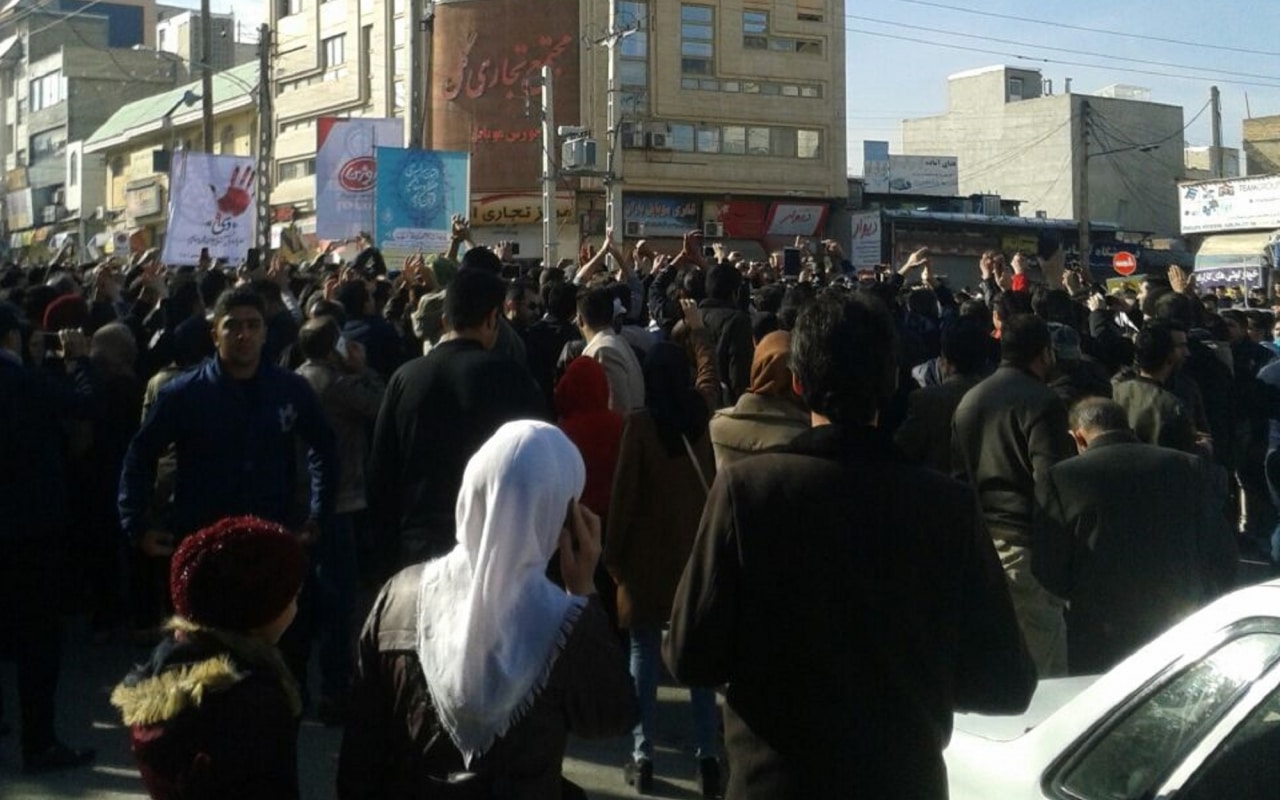Crackdown continues over demonstrations about economic and political issues
LATEST
Iran’s authorities have arrested 43 people in the western province of Kermanshah for participating in nationwide protests in January.
Mohammad Hossein Sadeghi, the provincial public prosecutor, revealed the arrests on Wednesday. He said those seized were under the influence of “cyberspace”.
Sadeghi described the protests, over economic and political issues, as “sad incidents” that caused “damage” to the country. He acknowledged that the demonstrations were “partially” due to economic difficulties but said they quickly fell into “deconstructive behavior” that was successfully checked by the judiciary and security forces.
He did not detail the possible sentence and fines facing those arrested.
Sadeghi downplayed the number of the cases referred to courts and said the majority of those arrested had attended the protests “out of ignorance” and therefore they have been released on bail.
The prosecutor did not provide any details about the duration of sentences or the amount of any fines awaiting the accused.
Iranian MPs said about 5,000 people were detained at some point during the protests. At least 25 people were killed during the demonstrations, and several detainees died in custody.
While the Rouhani Government has acknowledged that protesters were concerned over economic issues — including unemployment, bank failures, and mismanagement and corruption — the Supreme Leader and other regime officials have portrayed the demonstrations as controlled by the US, Israel, and Saudi Arabia.
Ahmadinejad Says Imprisoned Ally is on Hunger Strike
Former President Mahmoud Ahmadinejad says Hamid Baghaei, his ally and Vice President in the final years of his second year, is on hunger strike in prison.
Ahmadinejad made the claim in another open letter to the Supreme Leader, published on the ex-President’s Dolat-e Bahar outlet: “The judicial apparatus, without any documents or proof or legal citation…under the cover of financial accusations and in a closed trial -– has condemned [Baghaei] to the severest possible punishment.”
Baghaei, Vice President from 2011 to 2013, was given a 15-year sentence this month on charges of embezzlement. He maintains that the 3,766,000 Euros and $590,000 in cash was given to him by General Qassem Soleimani, the head of the Qods Force of the Revolutionary Guards, for “affairs to do with African countries”.
Ahmadinejad said Baghaei has refused food for two weeks and is in deteriorating health in solitary confinement.
Trying to return to frontline politics, Ahmadinejad has pursued a series of complaints against other officials in the regime, including corruption, abuse of power by the Revolutionary Guards, judicial harassment, and — ironically, given his disputed re-election in 2009 and suppression of protests afterwards — failure to ensure free and fair ballots.
The regime has pressed back by blocking the Presidential candidacies of Ahmadinejad and Baghaei, and by arrests which also included former Chief of Staff Esfandiar Rahim-Mashai senior advisor Ali Akbar Javanfekr.


“While the Rouhani Government has acknowledged that protesters were concerned over economic issues — including unemployment, bank failures, and mismanagement and corruption — the Supreme Leader and other regime officials have portrayed the demonstrations as controlled by the US, Israel, and Saudi Arabia.”
That’s not quite true. The Leader acknowledged that the cause, or at least excuse, of the original protests in his home city of Mashhad were due to the economic failures of the Rouhani government, but that outside players were exploiting and pouring fire on them for their own purposes. He specifically mentioned the MEK/MKO which has [claimed] that it was behind…violent episodes, such as…attacks on police stations, a prison, banks, mosques and seminaries.